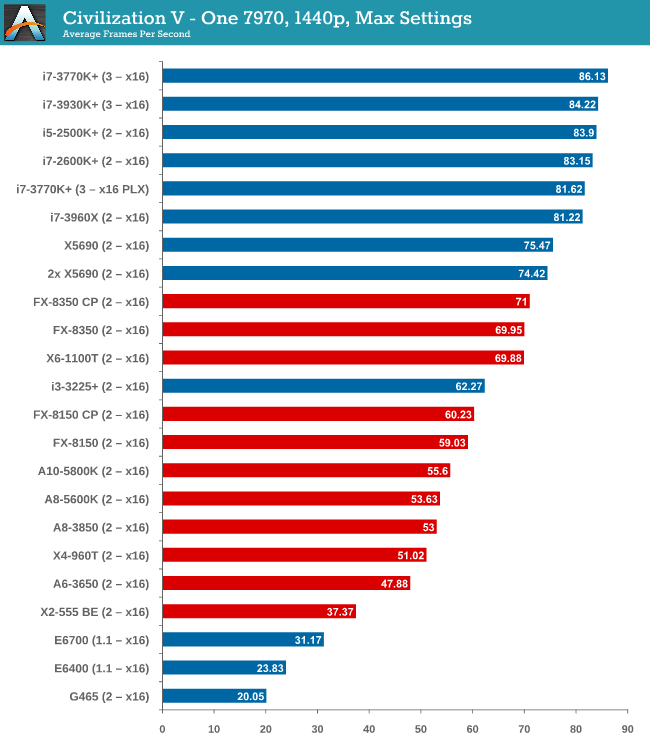If you want to run a 30 FPS next-gen game at 120 FPS I think an OC'ed 5960X might not even be overkill

Well that's what I'm talking about here - having both more cores, plus more powerful individual cores.
I'm a big user of vsync and I like a nice, smooth and capped 60fps. To achieve this, I sometimes have to actually achieve an average of 70-75fps, as some games can vary and dip considerably. So I might actually need to be able to hit 80-90fps just to lock it to 60fps.
I'm also considering a 1440p/120hz monitor in the next year or two.
And I'm buying the Oculus Rift CV1 as soon as its available, which will be 90hz at the least, and 1440p resolution.
If a 6 or 8 core CPU is going to help me out in these situations, then I wouldn't call it overkill and I wouldn't say its 'not for gamers' either.
Eh, it doesn't really work like that. There's never been a game in recent history that has been that severely bottlenecked by a CPU. In fact, the only games that are bottlenecked to a major degree are single or dual threaded games. Starcraft 2 and UE3 engine games spring to mind as some of the biggest offenders. Even in the case of those games, you don't see a four fold increase in frame rate going from a high end processor to a REALLY high end processor. The gains pretty much stop once you get to a 4.5GHz Intel Core Series processor.
In general, you can say that the more threads a game uses, the less CPU performance has an affect on frame rate.
Furthermore, the 2500K (at around 4.5GHz) is already around 3 times as powerful as the CPU on the PS4.
Lastly, the things that are typically responsible for fairly large frame dips, like translating game state, or physics, to this point have not really been helped by further parallelism. Durante, I know almost nothing outside of objective data on the testing front for this type of stuff with some admitted not 100% precise deductive reasoning to determine this, but would those typical CPU-heavy tasks be improved through parallelism in the future?
Even if that were the case, again, I think you would see a reduced emphasis on CPU being an important aspect of maintaining a frame rate.
Should I send back the 4790k I ordered yesterday?
Not unless you use your PC for professional work that requires 12 threads.
Plenty of pc only games
+ most console games only run at 30 fps so you'll need at least 2x the cpu performance (easily gotten with an old i5 2500k at least) for 60 fps, then some more for better lod settings and a higher fov, then if you care about 120 hz or vr you'll need even more.
You don't buy a gaming pc to play console games at 30 fps, you play it to play pc games and to play all your games at 60+ fps
You can't assume the CPU is the reason the game is running at that frame rate. It's almost certainly not the case.
*edit*
Here's probably one of the more interesting benchmarks. Civ V is one of the very few games that is actually n-threaded. This benchmark was done at 1440p with a single 7970.
*edit 2*
And this is Crysis 3, which can use 4 or more threads on a CPU efficiently.


